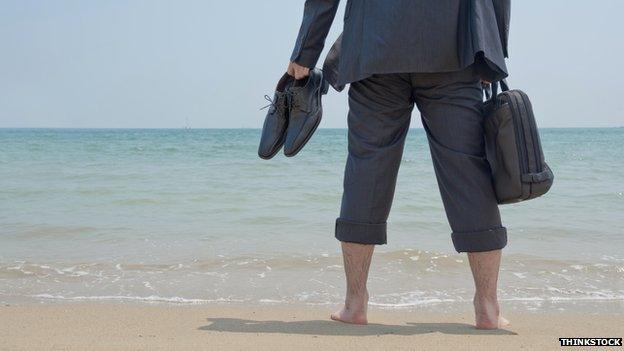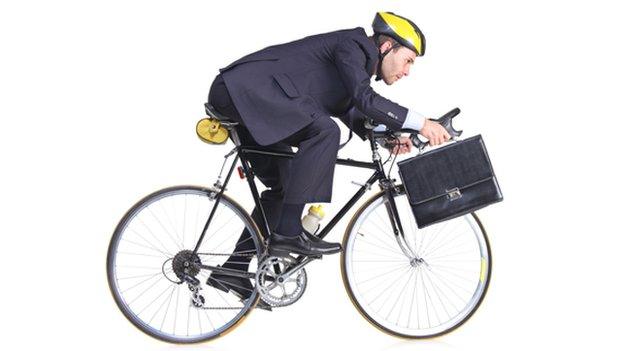How to slack off successfully at work
- Published
- comments

At some times of the year work feels more of a chore than at others. Summer is one of those times, when if you are stuck in the office, the mind strays to work avoidance strategies, writes Lucy Kellaway.
For inspiration I've been studying two colleagues, both the same age, both equally talented.
One is a magnet for extra work, which gets dumped on him all the time. The other man never does any surplus tasks. He isn't exactly lazy, but only works on things that interest him. In his spare time he sits in his office watching the tennis on his iPhone.
Which of the two is more handsomely rewarded for their unequal effort? Mr Obliging or Mr Not-so-Obliging?
The sad truth is that the first has received no benefit from his drudgery, while the second has suffered no punishment for his shirking.
I have been trying to understand how Mr Not-so-Obliging gets away with it. At first I thought it was a matter of saying no.
Yet it turns out skilled work avoiders hardly ever say no. They do something far more ingenious - they avoid being asked in the first place.
Be scary
There are some well-known strategies for this, including bustling around with a clipboard looking busy or wearing headphones and staring intently at the screen forbidding anyone from approaching.
Yet Mr Not-so-Obliging tells me his secret is far simpler - he simply reduces to the barest minimum the amount of time he spends in the office.
If you aren't there physically it is extraordinary how little grunt work you get asked to do.
The trouble with this trick is that if you are never in the office, people forget you exist.
Fortunately there is another work-avoidance strategy that I have seen used to such great effect by some colleagues it amazes me that there is no body of literature supporting it, and no courses teaching you how to pull it off.
It is to act frightening. Frightening people never get asked to do grunt work. The difficulty here is that scariness is partly an innate characteristic, and partly comes with seniority.
However, at the margin it may be possible to make yourself a little more frightening by playing on your workmates' fear of the unknown.
We are scared of people whose behaviour we can't predict, and so it might be an idea to alternate taciturn behaviour with bouts of garrulousness.
People might think you scary - but then again they might just think you were going mad.

One way of avoiding work is to not go into the office in the first place
Being hopeless can help
The best work-avoidance technique of all is to be perfectly willing, but perfectly incompetent.
This trick is much practised at home by my sons, who when asked to do the washing up take care always to do it so badly that it becomes a serious disincentive to asking them to do it again - especially if there is anyone more competent around to do it instead.
The equivalent of the washing-up technique at work is to be hopeless at small tasks. To be late writing boring reports or to write scrappy minutes for meetings.
Alas, this is a trick for the advanced class only - you should never attempt it unless you are considered to be very good indeed at the big stuff.
Lucy Kellaway is an author and Financial Times columnist. Listen to her on Business Daily and World Business Report on BBC World Service every Monday.
- Published16 June 2014

- Published10 April 2014

- Published13 January 2014

- Published16 December 2013
